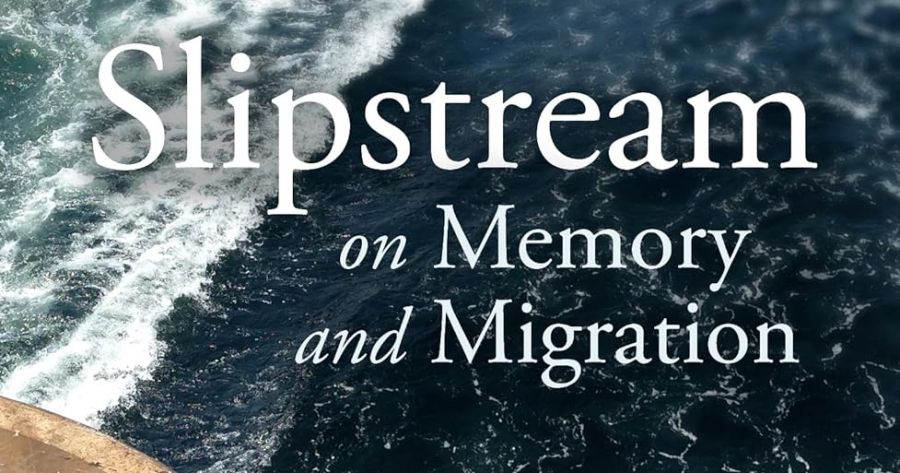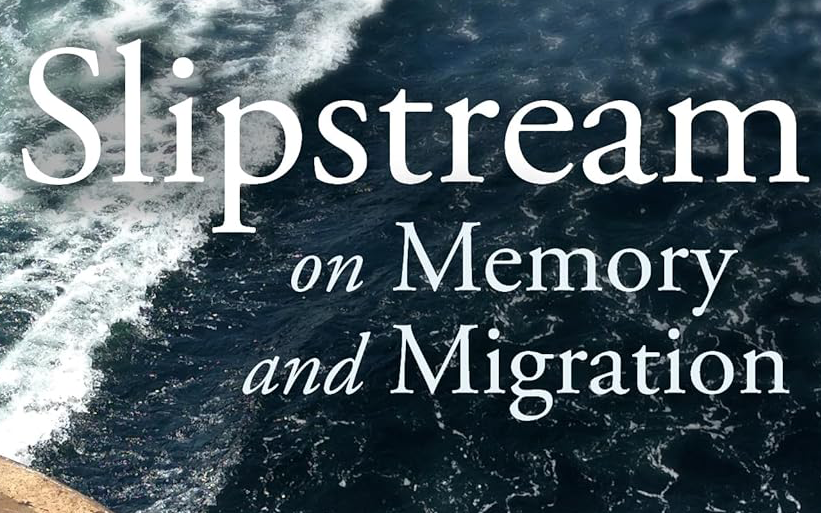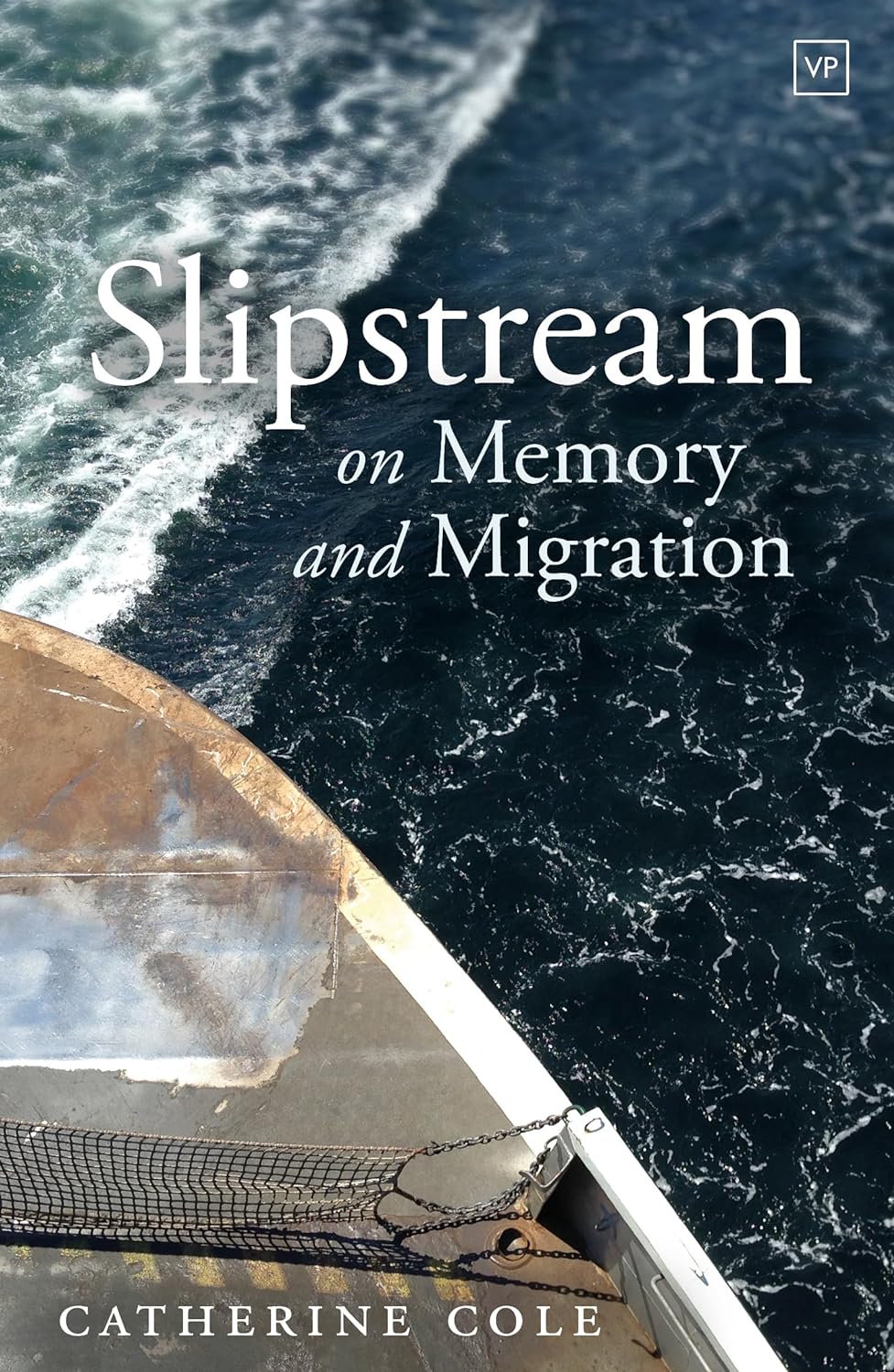
- Free Article: No
- Contents Category: Memoir
- Review Article: Yes
- Article Title: Straddling cultures
- Article Subtitle: An incomplete account of migration
- Online Only: No
- Custom Highlight Text:
Slipstream is both a memoir and an essay on migration. It hangs upon the story of one family, who migrated from Yorkshire (where this book was published) to Sydney in 1949. The narrator was their first-born in the new land and, as she tells it, her life has been one of constant oscillation, both emotional and physical, between England and Australia. It is a tale of her parents’ ‘exile’ and her ‘returns’ – to the country she only ever knew in stories, as she was growing up, but which became ingrained in her imagination.
- Featured Image (400px * 250px):

- Alt Tag (Featured Image): Susan Sheridan review ‘Slipstream: On memory and migration’ by Catherine Cole
- Book 1 Title: Slipstream
- Book 1 Subtitle: On memory and migration
- Book 1 Biblio: Valley Press, £19.99 pb, 234 pp
- Book 1 Cover Small (400 x 600):

- Book 1 Cover (800 x 1200):

The Cole family of four arrived on the Empire Brent, a converted troopship, as early participants in the assisted passage scheme for British migrants, who were colloquially known as the ‘ten pound Poms’. While the story of postwar migration to Australia is common knowledge, it is worth being reminded of just how rapid and significant it was: between 1946 and 1960, the Australian population grew by an average of 2.7 per cent a year. As well as the British, this influx was made up of European migrants from displaced persons camps (the International Refugee Organisation scheme), later joined by settlers from southern and eastern Europe.
The standard history of British migration during this period, Ten Pound Poms (2005) by James Hammerton and Alistair Thomson – a key background text for Cole – points out that the British comprised never less than a third and sometimes more than a half of all settler arrivals. Being in the majority and migrating to an Anglophone – and at that time Anglophile – settler society, the British were expected to adjust readily and easily to their new lives. Yet Ten Pound Poms shows that homesickness was a common experience, and that age and sex made for differences in adjustment within this group.
In Slipstream, Cole considers her father’s lifelong anxiety, as well as her mother’s habitual reticence, from this perspective of homesickness as a recurrent condition which is deeply connected to the way that life is experienced in the present. The family did well, as they could proudly report back to their families in England: like so many postwar Australian working families, new migrants or not, they bought land and built a house on it, starting with a garage that they could live in, while the children grew up well and strong, went to school and university, ‘becoming Australian’ (as one chapter is titled). Yet Cole feels that her parents’ homesickness infected family life, and while she and her siblings loved the stories they heard, over and over again, of life back in Yorkshire – her older sister and brother remembered some of this for themselves – they grew up ‘straddling two cultures’, their identities ‘thinned and spread and stretched’ between them. This ‘misshapen’ identity, she maintains, is the condition of many children of migrants.
The Coles never lost their identity as Northerners: ‘cloth caps, pits, parkin, Yorkshire puddings, accents’. This is no doubt true of most emigrant Scots, Welsh, and other British regional identities – not to mention the Irish. It is surely all the more true of migrants from other cultures, where the maintenance of their primary language, as well as cultural mores, is constantly challenged. Those who migrate, whether voluntarily or not, know very well where they have come from; and they are highly motivated to learn how to live in the new place. For the second generation, though, Cole suggests that this cultural duality is experienced as a conflict, often disorienting. They are driven by a need to understand their parents’ migration – what it cost and what it gained.
Cole states that her aim for the book is to ‘chronicle how they plaintively memorialised the old world while staying ambitious and optimistic for the new one’. She also wants to express gratitude, both for her parents’ storytelling – which, she says, made her a writer – and for their leaving their country ‘to give their children a better life in a new one’.
The book’s title suggests the advantage thus gained by the children of migrants, following behind their parents’ rapid movement. Yet the cover illustration depicts a boat and the wake of broken water behind it – an image more apposite than that of a slipstream to the tales of sea voyages that dominate the memoir, and to the recurrent emphasis on the choppy and difficult passage of second-generation migrant children.
For all her concern with ‘identity’, Cole’s focus on her parents’ stories of the past conveys only a vague impression of them as individuals – of their particular interests, their everyday lives in Australia, their relationships with their children. And what of the narrator herself? She tells of her own travels, her frequent returns to England, and her recent ‘return migration’ to take up a late-career university position in Liverpool. Apart from that, readers learn little about her. What have been her passions, her education, her work, her relationships? Has her life been entirely dominated by her position as a second-generation migrant?
Slipstream is a mixed bag, generically speaking. As an essay in cultural analysis as well as a memoir of her parents and their legacy, it sometimes feels overburdened by the commentaries of other writers: there is a risk of these essay elements occluding the portraits of people central to the memoir. In the latter part of the book, Cole seems to be addressing her new friends and colleagues in England, explaining herself as an Australian – but not quite. I could not help but notice the use of British terminology, like ‘civil service’ instead of ‘public service’. Much more intrusive, unfortunately, is the woeful lack of proofreading in this publication: Ghassan Hage’s name is misspelled in four different ways, and the footnotes are inconsistent and incomplete. Surely Yorkshire can do better than this.


Comments powered by CComment